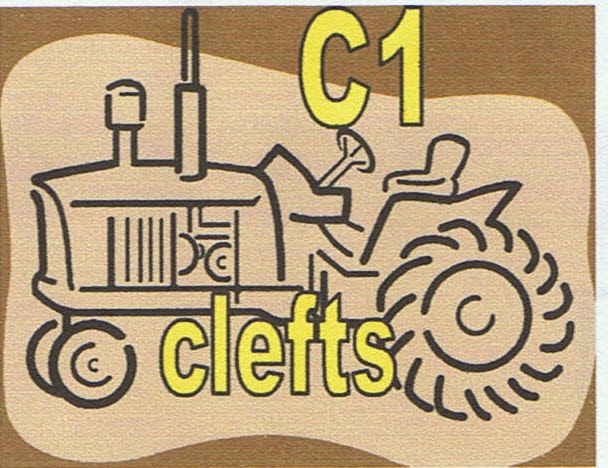C-1 Grammar: FRONTING
|
FRONTING
So many years trying to put all the words in a
pre-established order, and being punished if you didn’t, and now the teacher
comes with this idea of “fronting”, which is nothing less than ordering the words
out of order, i.e. the pre-established order.
Let’s start right from the beginning: remember the order (famous
“empty” or “MPT”)
S + V + O + O + M + P + T
[subject+verb+object+object+manner+place+time)
“Fronting” means moving one of the MPT elements to
“front position and then the verb and then the subject:
Shouting and shooting
arrived the sheriff (M+V+S)
When I looked up, from
the seventh-floor balcony hung a desperate woman (P+V+S)
What did we do this for? To emphasize the subject,
which is left to the very end: everybody should pay attention or hurry up the
reading to learn who arrived shouting and shooting.
Have a look at the following sequence:
Philip knew he
had to find his wife before it was too late, so he drove like a maniac along
the streets, speeding up, screeching at corners, flashing the lights, blowing
the horn. When he got to the house, he ran in and stopped dead at the bottom
of the stairs. Silence. He looked up. Late, it was too late: for on the first
floor laughed...... his mother-in-law.
Not
very different from Spanish if you think of it. Why not?
Gritando
y disparando llegó el sheriff
Cuando
miré hacia arriba, del balcón del séptimo piso colgaba una mujer desesperada
But in English you
cannot (yes together) write like this all the time; it’s just a technique to
create suspense, emphasize.
Now, BEWARE, if you
place the objects in front position two things may happen: either you must
turn it into the passive voice or have a different meaning altogether
The policeman arrested the thief
The thief arrested the policeman (absolute nonsense, I hope)
The thief was arrested by the policeman (Passive voice)
A) Try
“fronting” in the stretches in italics. The answers will be below (don’t
cheat).
1. As desperate as he was after
losing a fortune at the casino, Mr NN ran
up the Tour Eiffel to have
his last jump.
2. When I returned after five years, a
weird couple had settled in my old beloved home.
3. The house was in absolute silent
but I knew that Freddy Krugger was
hidden somewhere.
4. I couldn’t believe my eyes: there was a snake under the table (no
green underline help).
5. I pull and pull, the fishing-rod
bent and bent and finally a shark came
out of the water.
6. When I opened the door Napoleon in person stood right in front of
me.
7. The bull ran through the open door
into the house.
8. Three children went into the sea in spite of the frightening waves.
9. As I went into the house a burglar ran out through a back window (beware
of “out”)
10. The Hollywood star’s helicopter landed in the middle of nowhere.
B) Fronting
dependent clauses is even easier: you simply place the clause in front
position, write in a comma and
then the main clause:
How he got to know it, I’ve no idea
Why he did it, we do not know
1. I don’t know who that man was.
2. I didn’t hear when he left.
3. I never got to know how she made
it to the top.
4. She doesn’t know how to make good
marmalade.
5. He doesn’t know where she’s gone.
C) Find the “fronting”: In the following mini-texts find
the sentence to front most naturally, and accurately, of course.
1. Claustrophobic as he was, he had thought
of walking up to the seventh floor to attend the interview. But he had to
change his mind as soon as he entered the building because a crowd with
banners and whistles came down the stairs.
2. A noise woke him up. He looked at
the clock. It was still 3am. He wouldn’t wake his wife up. Then the noise
again. It came from the ground floor. Silently, he got up, took his Smith
Wesson from the wardrobe and checked it was loaded. Yes, all six bullets were
in the cylinder. On tiptoes he left the room and on tiptoes he descended the
stairs. When he reached the living-room he couldn’t believe his eyes: a bear
was snoring on the carpet.
3. He was so hungry, and in the
middle of the match. He ran to the fridge, took out a can of beer and some
ham and returned to his sofa. Still hungry; what a nuisance! He ran again for
more ham but the cat was in the fridge eating the rest of it.
4. He loved driving at 150 miles per
hour. Down the mountain, he took the bends with a screech; he loved the
screech of the tires. Another bend. And then another. Till the car flew to
the bottom of the abyss.
5. It was a beautiful day for rowing
and the three young boys were having a good time on the lake. Talking of
football, talking of girls, sipping some beer, they let time pass.
Unexpectedly, the boat hit a rock and all three ended up in the water.
KEY
DON’T CHEAT
A)
1. …….up the Tour Eiffel ran Mr NN to have his last jump.
2. ………..in my old beloved home
had
settled a weird couple
3. ….somewhere was
hidden Freddy Krugger
4. …. Under the table (there) was
a snake.
5. ….out of the water came a shark
6. ….right in front of me stood Napoleon in person
7. ….through the open door into the house ran the bull /into the house
through the open door ran the bull
8. In spite of the frightening waves into the sea went three children.
9. ….out through the back window ran a burglar.
10. In the middle of nowhere landed the Hollywood star’s helicopter.
B)
1. Who that man was, I don’t know
2. When he left, I didn’t hear.
3. How she made it to the top, I
never got to know.
4. How to make good marmalade, she
doesn’t know.
5. Where she’s gone, he doesn’t know.
C)
1. a crowd with banners and whistles
came down the stairs → down
the stairs came a crowd with banners and whistles.
2. a bear was snoring on the carpet → on
the carpet was snoring a bear
3. but the cat was in the fridge
eating the rest of the ham. → but
in the fridge was the cat eating the rest of it
4. Till the car flew to the bottom of
the abyss → till to the bottom of the
abyss flew the car
5. and all three ended up in the
water → in the water ended up all
three
* * *
|




Comentarios
Publicar un comentario